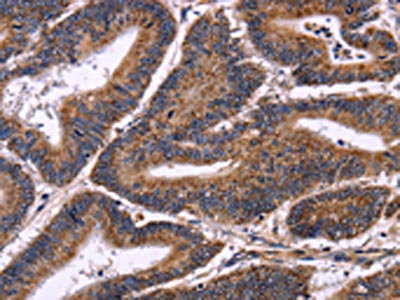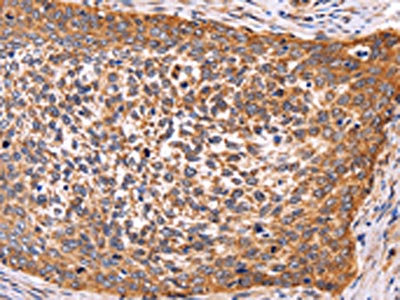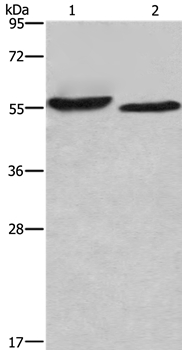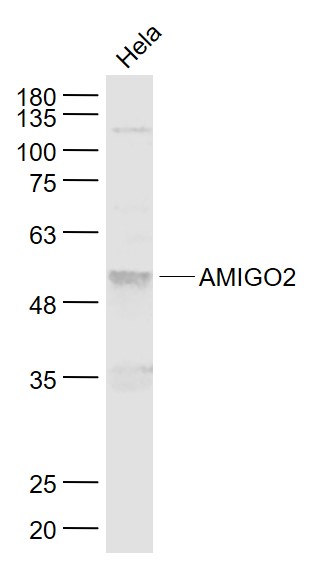
The image on the left is immunohistochemistry of paraffin-embedded Human colon cancer tissue using CSB-PA176639(AMIGO2 Antibody) at dilution 1/50, on the right is treated with fusion protein. (Original magnification: x200)
AMIGO2 Antibody
CSB-PA176639
ApplicationsWestern Blot, ELISA, ImmunoHistoChemistry
Product group Antibodies
ReactivityHuman, Mouse, Rat
TargetAMIGO2
Overview
- SupplierCusabio
- Product NameAMIGO2 Antibody
- Delivery Days Customer20
- ApplicationsWestern Blot, ELISA, ImmunoHistoChemistry
- CertificationResearch Use Only
- ClonalityPolyclonal
- ConjugateUnconjugated
- Gene ID347902
- Target nameAMIGO2
- Target descriptionadhesion molecule with Ig like domain 2
- Target synonymsALI1, AMIGO-2, DEGA, amphoterin-induced protein 2, alivin 1, amphoterin induced gene 2, differentially expressed in gastric adenocarcinoma, differentially expressed in gastric adenocarcinomas, transmembrane protein AMIGO2
- HostRabbit
- IsotypeIgG
- Protein IDQ86SJ2
- Protein NameAmphoterin-induced protein 2
- Scientific DescriptionThe amphoterin-induced gene and ORF (AMIGO) family of proteins consists of AMIGO-1, AMIGO-2 and AMIGO-3. All three members are single pass type I membrane proteins that contain several leucine-rich repeats, one IgG domain, and a transmembrane domain. The AMIGO proteins are specifically expressed on fiber tracts of neuronal tissues and participate in their formation. The AMIGO proteins can form complexes with each other, but can also bind itself. AMIGO-1, also designated Alivin-2, promotes growth and fasciculation of neurites and plays a role in myelination and fasciculation of developing neural axons. In cerebellar neurons, AMIGO-2 (Alivin-1) is crucial for depolarization-dependent survival. Similar to AMIGO-1 and AMIGO-2, AMIGO-3 (Alivin-3) plays a role in homophilic and/or heterophilic cell-cell interaction and signal transduction
- ReactivityHuman, Mouse, Rat
- Storage Instruction-20°C or -80°C
- UNSPSC41116161







